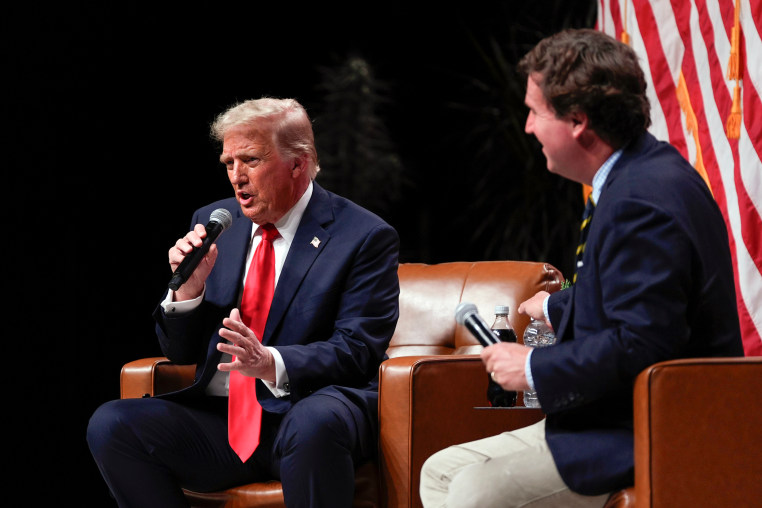
Arizona Investigates Trump’s Violent Comments Toward Liz Cheney Amid Election Tensions
The Arizona Attorney General's Office is scrutinizing recent comments made by former President Donald Trump regarding former Congresswoman Liz Cheney. During a recent event in Arizona, Trump remarked that Cheney, a known critic of his policies and an advocate for a strong military approach, might rethink her stance if “guns were trained on her face.” This comment, which many see as inciting violence, has prompted Arizona Attorney General Kris Mayes to launch an investigation to determine if it qualifies as a threat under Arizona law. Mayes emphasized that such rhetoric could threaten public safety, especially during an election period.
This incident took place during an event where Trump, known for his sharp criticism of political opponents, was speaking with Tucker Carlson. Trump, addressing Cheney's consistent support for military interventions, labeled her a "radical war hawk" and implied that her perspective might change if she were personally at risk. The comment quickly sparked backlash and was condemned by several political leaders, including Vice President Kamala Harris, who called Trump’s words "disqualifying" and labeled his recent rhetoric increasingly violent.
Also Read:- Andy Cohen and Bravo Stars Reunite for Kidney Disease Awareness at NephCure Gala
- Kohli's Run Out Sparks Controversy as India Loses Momentum vs New Zealand
Trump’s words come amid heightened political tensions as the 2024 election approaches. He has often targeted opponents with fierce language, calling Democrats and some Republicans "the enemy from within" and suggesting that the military could be used against American citizens to address “internal threats.” These remarks add to his pattern of using militaristic and adversarial language when speaking about political rivals. Recently, Trump also implied he might seek jail time for his political opponents, further intensifying the discourse.
Trump's campaign defended his comments about Cheney, stating that they merely highlight her aggressive military stance and that she is quick to send others into combat while avoiding personal involvement. However, many have interpreted his comments as a direct threat, which could potentially breach state and federal laws against violent speech directed toward individuals. The investigation by Arizona's Attorney General's Office will examine whether Trump's remarks about Cheney qualify as incitement or a threat under the state's statutes.
Responses from both sides of the political spectrum underscore the divisive nature of the comment. While some conservatives argue that the media misinterpreted Trump's remarks, liberals and other critics argue that Trump’s language is becoming increasingly dangerous. High-profile figures such as Vice President Harris have stressed that a leader using rhetoric encouraging violence against a political opponent should not be in consideration for the presidency. They argue that Trump's comments reflect a concerning pattern of behavior that endangers democratic norms and safety.
Trump’s escalated rhetoric in recent weeks has not only raised eyebrows but has also ignited discussions about the limits of free speech in political discourse, particularly when that speech could be perceived as a call to action. As the investigation continues, the Arizona Attorney General’s Office will likely examine both the intent and context of Trump’s comments to determine their legal implications. This case may set a precedent as to how far political leaders can go in criticizing their opponents without crossing into legally actionable threats.
In the midst of an already intense election cycle, this investigation signals a potential shift toward greater scrutiny of public figures' language in a politically charged environment.
Read More:


0 Comments